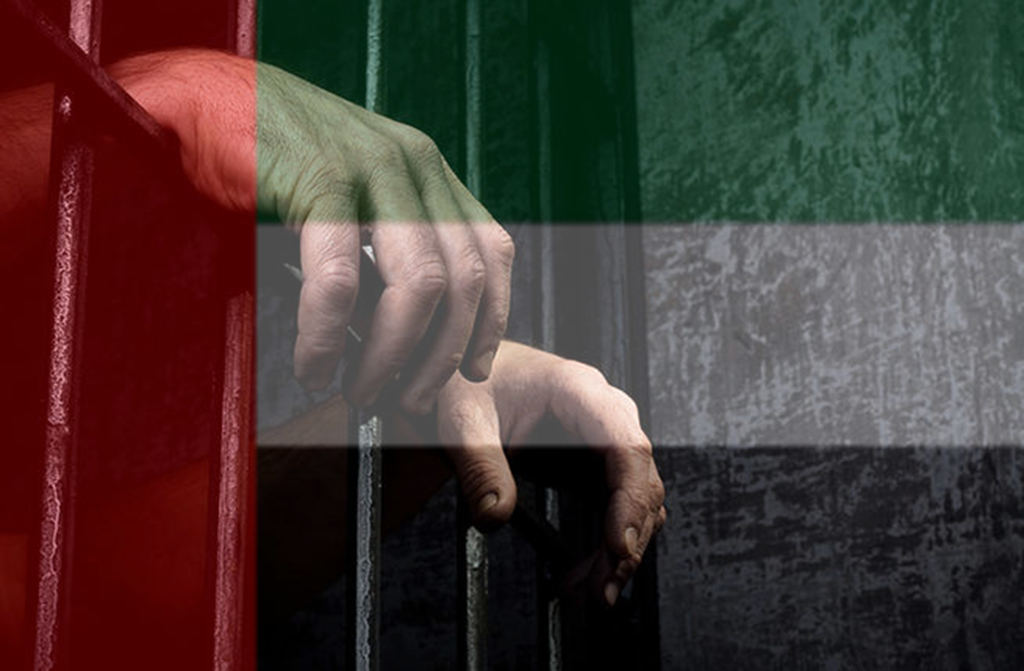Recent reports have shed light on the likely existence of secret prisons run by the United Arab Emirates (UAE) in Yemen, and the horrendous acts of torture that have occurred in these facilities. Despite credible and detailed allegations, the United States (US) continues to turn a blind eye and refute any accusations of wrong-doing by its Gulf partner.
These claims of UAE inflicted torture, along with denial by the US, are not new. Back in 2017, Associated Press released similar reports stating individuals were being blindfolded, beaten, crammed into shipping containers, sexually assaulted, and set on fire in secret UAE-run prisons in Yemen. It was implied that these actions occurred with the knowledge and participation of US security forces. In response to these findings, chief US Defense Department spokeswoman at the time, Dana White, said “We always adhere to the highest standards of personal and professional conduct. We would not turn a blind eye, because we are obligated to report any violations of human rights.”
Now, a year later, similar allegations have resurfaced. Detainees were able to smuggle out letters and drawings from inside a Yemen prison, detailing the sexual abuse they were repeatedly subjected to at the hands of UAE guards. Torture included the electrocution and abuse of genitals, rape and sodomization, and severe beatings, in addition to other gruesome acts. Following the release of this information, the UAE denied all accusations and maintained they did not operate any secret prisons in Yemen. They dismissed the report as having political motivations. Instead of raising concerns, the US validated the UAE’s handling of the situation. General Joe Votel, head of the US Central Command that oversees US operations in the Middle East, stated, “I am satisfied that the appropriate investigations are underway to determine the facts associated with this. We have the confidence that (the Emiratis) will continue to operate in a manner that befits their values and ours.”
With allegations of torture abroad, it shouldn’t come as a surprise that the UAE also has a history of abuse in domestic prisons. In 2015, security forces forcibly arrested and disappeared Dr. Nasser Bin Ghaith in relation to exercising his right to free expression. While held in custody for over a year prior to his sentencing, Dr. Bin Ghaith was physically tortured, beaten, and deprived of sleep for up to a week. The UAE government ultimately sentenced him to ten years in prison in a final verdict by the Abu Dhabi Court of Appeals on 27 March 2017, despite clear due process violations. Nine days prior to this verdict, human rights defender Ahmed Mansour was also arrested and forcibly disappeared. While detained, Mansour was subjected to torture and ill treatment. On 29 May 2018, the UAE government sentenced Mansour to ten years in prison for “insulting the ‘status and prestige of the UAE and its symbols’ including its leaders” and of “seeking to damage the relationship of the UAE with its neighbors by publishing false reports and information on social media.”
All forms of torture are prohibited under the United Nations Convention against Torture (CAT), to which the UAE acceded to in July 2012. Allies like the United States must use their position to pressure the UAE to adhere to international human rights standards. The heinous rights violations occurring in UAE prisons, both domestically and abroad, must immediately be brought to an end and all perpetrators must be held accountable.
Monica Zuraw is an Advocacy Fellow at ADHRB





